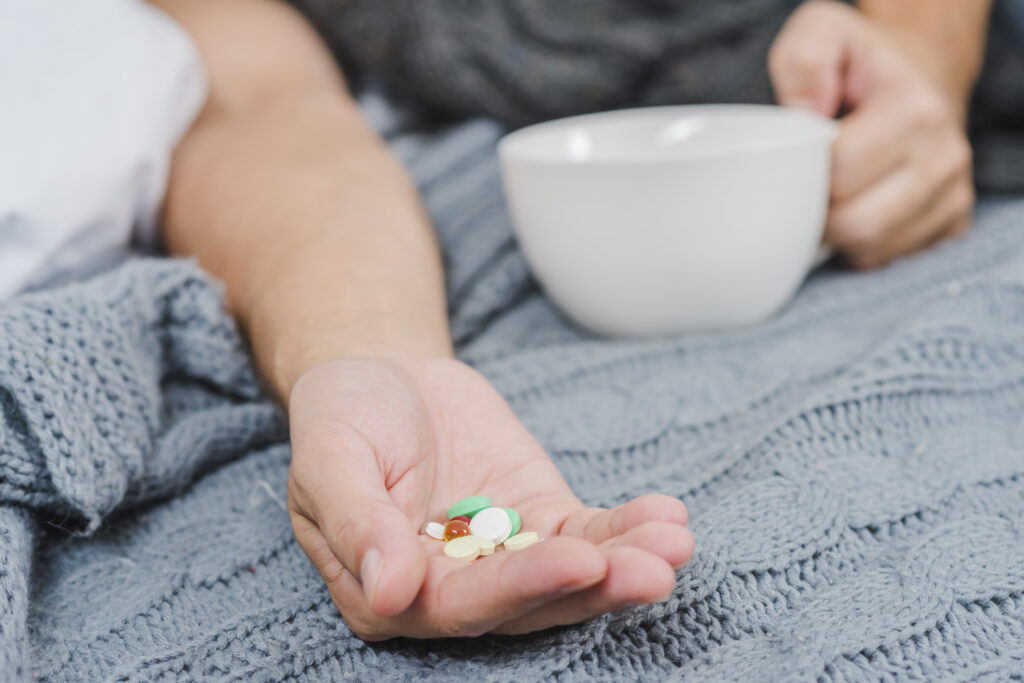Overview
You might be considering taking probiotics with antibiotics but are still determining if it is the right decision due to insufficient scientific backing or unclear answers. Although some research supports taking probiotics with antibiotics, claiming it may have benefits, other research suggests it might not have a significant impact. If you are wondering if you can take probiotics with antibiotics, we have tried to clear your confusion in this article.
Can you take probiotics with antibiotics?
The relationship between probiotics and antibiotics is not a simple one.
Some evidence suggests that taking probiotics with antibiotics helps counterbalance the side effects of the antibiotics, while other studies derail this claim and state that it has no significant impact.
The digestive system houses millions of organisms. Those termed as good bacteria not only aid in digestion but also have an immune protective role. Antibiotics are essential to cure an infection, but unfortunately, they don’t discriminate between these good bacteria and the harmful ones causing the infections. Hence, they eliminate infections such as sinusitis or urinary tract infections and eradicate all forms of bacteria in the gut, disturbing the natural balance of the microbes in your digestive tract.
According to a few studies, up to 35% of people taking antibiotics experience diarrhea as a side effect, and taking a probiotic helps reduce the risk by half.
Moreover, studies have concluded that probiotics can significantly reduce the chances of Clostridioides difficile (C. diff) colitis, inflammation in the colon caused by an overgrowth of C. diff, which is antibiotic-induced.
When to take probiotics with antibiotics?
Individuals taking antibiotics are more likely to experience nausea, indigestion, abdominal discomfort, fatigue, antibiotic-induced diarrhea, and loss of appetite. However, the chances of such side effects can be reduced by taking probiotics.
Furthermore, the following individuals who have antibiotic side effects may benefit from taking probiotics with antibiotics:
- Those who are 65 or above
- Those residing in a nursing home
- Those with a weak immune system
- Those with a history of C. diff infection
Taking probiotics with antibiotics may have additional benefits in treating infections, including bacterial vaginosis or H. pylori.
Which is the best probiotic to take with antibiotics?
Making the correct choice while choosing the best probiotic to take with antibiotics is another challenging decision. Two specific strains of probiotics, L. rhamnosus GG and S. boulardii have strong evidence backing them for their benefits when added to antibiotics. It’s recommended that you take one of these.
How should I take probiotics with antibiotics?
Let us look into how and when to take probiotics with antibiotics.
It is recommended to take probiotics a few hours after taking the antibiotic. Taking probiotics after finishing the course of antibiotics doesn’t seem to be of much benefit; therefore, taking probiotics with antibiotics is advised. This is partly because the gut microbe takes longer to recover or reestablish if probiotics are started at a later stage.
Are there any risks to taking probiotics with antibiotics?
Evidence from some research concludes that consuming certain strains of probiotics, including Lactobacilli and Saccharomyces helps prevent antibiotic-associated diarrhea. However, there isn’t sufficient research to conclude or address any harmful effects of taking probiotics. Some hints suggest a delay in the expected recovery of the gut’s natural microbes.
Why don’t doctors prescribe probiotics with antibiotics?
Keeping in mind the cost and side effects of probiotics, doctors may not prescribe probiotics. Additionally, they believe that consuming probiotic-rich food like yoghurt, sourdough bread and kimchi rather than the supplement form is a better option.
When to consult a doctor?
If you are experiencing side effects from antibiotics or want to know how to prevent or reduce the risk of such side effects, talk to our doctor at Your Doctors online. Moreover, if you have any questions about taking probiotics with antibiotics, get answers straight away.
FAQs about the taking probiotics with antibiotics
Your gut houses numerous bacteria that aid digestion and are required to maintain a strong immune system. In order to maintain your health, a healthy gut is a priority. Some healthcare providers believe that consuming probiotic supplements while taking antibiotics can help counter the adverse effects on the gut flora.
Consuming fermented foods rich in probiotics, including yogurt, sourdough bread, kimchi, and pickles, can help support the immune system and gut health.
Different classes of antibiotics target different bacteria. Broad-spectrum antibiotics target a wide range of bacteria and can affect your gut health. Antibiotics prescribed to you will depend on the infection/illness and your medical history.
Probiotics can be taken a few hours after taking your antibiotic pill. Consult your doctor if you are taking several medications to determine the best time to take your pills.







